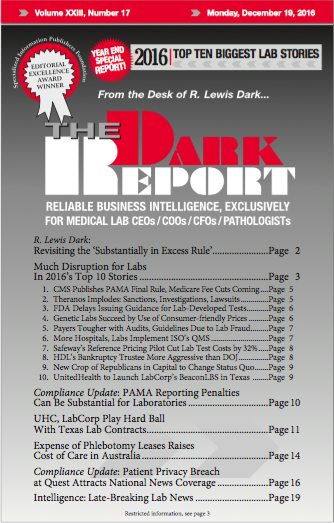CEO SUMMARY: In launching BeaconLBS in Texas, UnitedHealthcare included a new, more onerous twist than it used for BeaconLBS in Florida. To be a BeaconLBS in-network ‘lab of choice,’ a lab must be in the lowest quartile for lab test prices. Any lab above the 25th percentile would have to renegotiate its contract with UHC …
UHC, LabCorp Play Hard Ball With Texas Lab Contracts Read More »
To access this post, you must purchase The Dark Report.


